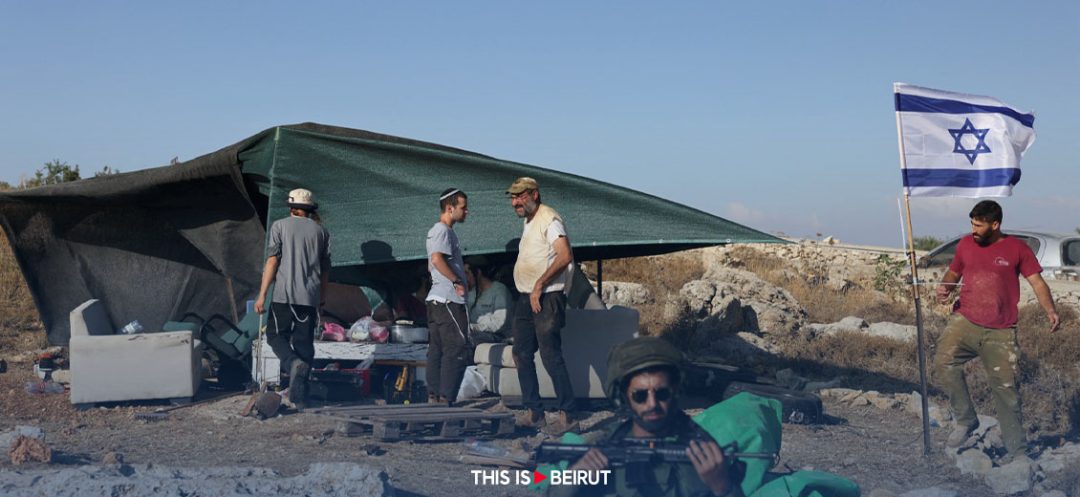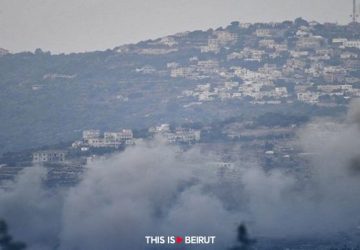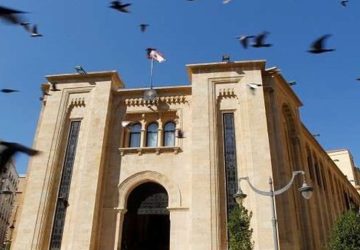As violence surges in the occupied West Bank, Palestinians and human rights groups decry an increasingly blurry distinction between the Israeli army and settlers, emboldened by the current pro-settlement government.
In the West Bank, the “line that never really existed between the army and the settlers” has now “been completely erased”, said Joe Carmel, advocacy coordinator for Breaking the Silence, an Israeli anti-occupation NGO made up of former soldiers.
The UN Office for the Coordination of Humanitarian Affairs (OCHA) recorded 1,096 settler attacks on Palestinians in the territory between October 7 and March 31.
That represents an average of six attacks per day, up from two a day in 2022.
Israeli human rights group Yesh Din, which also records settler violence, said 2023 was already a peak year.
With each attack, a similar story: armed settlers, sometimes wearing the army’s khaki fatigues, attack Palestinian villagers, burn their houses and cars, and steal their livestock, sometimes under the passive gaze of soldiers.
On April 13, Palestinians in the northern West Bank village of Duma watched in terror as hundreds of settlers attacked their village and stabbed a villager after an Israeli teenager who often visited a nearby settlement outpost was found dead.
On April 22, the army announced it had arrested a villager on suspicion of murdering the teenager.
“Protect all residents”
That day, the Israeli army “was present inside the village to ensure the security of settlers and protect them” during their raid, village council chief Suleiman Dawabsha told AFP.
An Israeli military spokesman told AFP that troops in the West Bank were there to “protect the property and the life of all residents, and disperse clashes”.
Not counting annexed east Jerusalem, more than 490,000 Israelis live in the West Bank in settlements considered illegal under international law, alongside some three million Palestinians.
The expansion of the settlements has gathered pace under successive governments since Israel’s capture of the West Bank in the 1967 Arab-Israeli war, but has accelerated sharply under the pro-settlement administrations of Prime Minister Benjamin Netanyahu.
Since the start of the war in Gaza on October 7, at least 537 West Bank Palestinians have been killed by soldiers or settlers, according to the Palestinian Authority.
At least 14 Israelis have been killed in Palestinian attacks in the territory over the same period, according to Israeli official figures.
On October 13, a settler shot 20-year-old Zacharia al-Adra at point blank range as he was leaving a mosque in the village of Al-Tuwani in the southern West Bank.
Soldiers “saw everything” but didn’t move, according to his wife Shouq al-Adra, 24.
Zacharia was critically wounded.
Pointing to what he said was a sociological change taking place in the army over the past decade, Carmel of Breaking the Silence said religious Zionist settlers have now become more visible in uniform and among senior officers.
Since the war in Gaza began, “we’ve seen that some settlers were wearing army uniform,” Ehud Krinis, a 57-year-old Israeli activist who helps Palestinians in the Hebron region, told AFP.
Human Rights Watch denounced the ambiguity, saying that Israel was responsible for the increase in settler violence over the past eight months.
“Active participation”
Human Rights Watch investigated five attacks perpetrated by settlers in five different Palestinian villages between October and November 2023, and concluded in April that “the Israeli military either took part in or did not protect Palestinians from violent settler attacks in the West Bank”.
“Evidence shows that armed settlers, with the active participation of army units, blocked roads and attacked Palestinian communities on several occasions: they have detained, assaulted and tortured inhabitants, and evicted them from their houses and land,” HRW concluded.
In April, UN human rights office spokeswoman Ravina Shamdasani told reporters in Geneva that “Israeli security forces must immediately end their active participation in and support for settler attacks on Palestinians”.
“Israeli authorities must instead prevent further attacks, including by bringing those responsible to account.”
Moayyad Bsharrat, advocacy director for the Palestinian Union of Agricultural Work Committees, said that settlers saw the inclusion of far-right settlement champions Itamar Ben Gvir and Bezalel Smotrich in the Israeli government as a “green light” to attack Palestinians.
Carmel says the Netanyahu government’s goal is clear: “to strengthen the settlement movement and, in so doing, to make it impossible for Palestinians to have any chance of gaining an independent state”.
The Israeli army told AFP that it looks into “complaints about soldiers’ behavior that is not in accordance with orders”.
But Carmel said that settlers and violent soldiers are only condemned “in very rare cases”.
“The state prosecutor and the whole government apparatus is designed in a way that’s supposed to protect them.”
Margaux Bergey, with AFP





